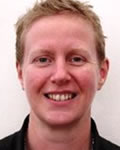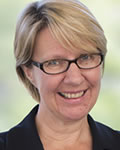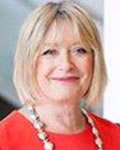This year the HERDSA Conference will see the introduction of three ongoing streams throughout the conference program. Emeritus Chris Rust will set the scene for the conference by posing challenges that we face in curriculum transformation in his keynote address, these challenges will include:
- Whole of institutional transformation;
- Embedding employability into curriculum transformation to create career ready graduates;
- Harnessing the student voice by fostering students as change agents.
To respond to these challenges you are invited to apply to join one of the streams that will meet for a 90 minute session each day for the three days of the conference, to discuss both the challenges and solutions for the future. These streams will be facilitated by key scholars including Australian Learning & Teaching Fellows and international leaders in the areas. The work from these streams will be presented back to the main conference in the final plenary session with Professor Rust acting as the discussant.
The three themes are:
Whole of Institution Curriculum Transformationâ Making the Change for All
This stream will address the challenges of implementing curriculum transformation across whole institutions:
- Developing a curriculum transformation framework that works for all;
- Meeting internal and external requirements;
- Inclusive, consultative processes for curriculum transformation â empowerment rather than buy-in;
- Implementing curriculum transformation â managing cultural and organisational change;
- Professional development for curriculum transformation.
This session will be facilitated by Prof Romy Lawson, Prof Sandra Graham including input from Prof Eeva Leinonen and Prof Beverly Oliver.
-

Romy Lawson is the Deputy-Vice-Chancellor (Education) at Murdoch University. She has been actively involved in teaching and learning development in higher education for over 20 years in both the UK and Australia. In 2013 she was awarded a National OLT Teaching Fellowship for work on Curriculum Design for Assuring Learning. Romyâs research has focused on constructive alignment in curriculum design; the effect of different assessment on student learning; leadership strategies for curriculum renewal; embedding professional learning in the curriculum; and the impact of professional development on teaching.
-

Sandra Graham is dean of the School of Arts and Sciences, director of the Master of Science in Community Psychology program, and a professor of psychology at Alverno College. Dr. Graham has extensive experience in facilitating adult learning in undergraduate, graduate, and community settings. She has worked with Alvernoâs ability-based curriculum at both the classroom and administrative levels, and she has taught courses in developmental psychology, clinical psychology, and the psychology of women. A mark of Dr. Grahamâs practiceâwhether in educational program planning and assessment, clinical work with individuals, or leadership of religious groupsâis her commitment to learning, her ability to listen deeply to the needs of individuals and organizations, and her respect for the diverse array of people and programs with which she is involved.
-

Professor Eeva Leinonen is the Vice Chancellor of Murdoch University after previously holding role of Deputy Vice-Chancellor (Academic) at the University of Wollongong. Professor Leinonen has an academic background in linguistics and psychology and has extensive experience in higher education in the United Kingdom, Europe and internationally. Prior to moving to Australia in 2012, Professor Leinonen held the position of Vice-Principal (Education) at Kingâs College, University of London. She has also been Deputy Vice-Chancellor at the University of Hertfordshire, UK. View more.
Professor Leinonen has been actively involved in national and international higher education debates and advisory groups, including: Chair of the UK Higher Education Funding Council/Quality Assurance Agency advisory group into Employer Engagement in Learning, Chair of the Kingâs âWarwick Project, Trustee of IntoUni Charitable Trust; Trustee of the Schoolâs Competition Settlement Trust, Member of the Teacher Education Ministerial Advisory Group in Australia, Member of the CEOs Council of Open Educational Resources University; Director of University of Wollongong Dubai Ltd.
-

Beverley Oliver was appointed Deputy Vice-Chancellor Education in 2013, and leads Deakin's ambitious education strategy. Her portfolio includes oversight of the projects designed to enhance student learning and experience, as well as the University Library, Deakin Learning Futures, Deakin Learning Centres, the Centre for Research in Assessment for Digital Learning, as well as DeakinPrime and DeakinDigital. Beverly is also a National Senior Teaching Fellow.
Embedding Employability into the Curriculum Transformation
This stream will address critical opportunities in employability development:
- Resourcing and supporting academic staff
- Understanding student development and graduate careers
- Forming partnerships with careers service professionals
- Rewriting the metrics for graduate success
- Operationalising institution-wide employability strategies
- Incorporating employability development success into academic career advancement
This session will be facilitated by Prof Dawn Bennet; and Lorna Froud.
-

Dawn Bennett is John Curtin Distinguished Professor of Higher Education and Director of the Creative Workforce Initiative with Curtin University in Australia. Her research focus is enacting and enabling employability within higher education learning and teaching. This incorporates research on employability, identity development, graduate transition and graduate work, retaining a special interest on careers in the creative industries. A violist and a Principal Fellow of the Higher Education Academy, Dawn is also a National Senior Teaching Fellow and convener of the Australian Learning and Teaching Fellowsâ network.
-

Lorna Froud is the Director of Careers and Employability University of Reading UK. Lorna has spent 10 years building up and enlarging a careers service at Oxford Brookes University, and is now Director of Careers and Employability at the University of Reading. Her areas of expertise include career development, job-search process, educational guidance, psychometric test administration and interpretation, mentoring, liaison with employers and management of staff, budgets, developing University policies in the area of Careers Education Information and Guidance and achievement of national quality standards. Her role at the University of Reading is to implement a new employability strategy to engage more students with the employability agenda, ensure Reading students are equipped for life beyond university and increase the number of students taking up internships and work placements. For three years she was a Director of the Association of Graduate Careers Advisory Services (AGCAS). Her role on the Board had responsibility for developing and producing the wide range of careers resources available to all UK universities published by Graduate Prospects. She has represented AGCAS at many government consultations, for example in developing the national careers service. She has worked closely with members of the Association of Graduate Recruiters, including delivering master classes to members on how to work more effectively with university careers services.
Students Leading Curriculum Transformation
This stream will challenge the conventional roles of students as passive educational consumers to:
- Explore the current role of students in curriculum reform activities, opportunities of students as partners, and aspirational âwhat could beâ models for curriculum reform
- Identify existing curriculum reform practices that reposition students as collaborative partners in reform efforts, and imagine possibilities for students and staff co-creating curriculum together
- Articulate real risks, challenges and opportunities of students as partners in curriculum transformation rhetoric and propose ways of migrating such risks to foster genuine student-staff learning relationships
This session will be facilitated by Dr Karin Crawford, Dr Kelly Matthews, and Lucy Mercer-Mapstone
-

Karin Crawford is the inaugural Head of the Higher Education Research Institute at the University of Lincoln in the UK. Karin has extensive experience, as a teacher, researcher and manager, in developing and implementing approaches that support meaningful student engagement and partnership working both within and beyond the curriculum. Karinâs work includes implementation of the Universityâs âStudent as Producerâ initiative, which establishes student-staff partnerships in development and delivery of research-engaged curricula. Karin has collaborated with students on many research projects exploring aspects of student-staff partnership working, including a recent project funded by the Higher Education Academy, to explore pedagogical practices that enhance student-staff partnerships and foster effective student engagement. Karin has a number of publications on this topic and is currently co-authoring a book for Sage publications, due for publication in 2017, titled âDeveloping student engagement in higher educationâ.
-

Kelly Matthews is a Senior Lecturer in Higher Education at The University of Queensland. In 2015 she was awarded an Australian Learning and Teaching Fellowship focused on Students as Partners. She is currently Vice-President for the International Society for the Scholarship of Teaching and Learning (ISSOTL) until 2019, co-leader for the 2015 ISSOTL International Collaborative Writing Groups initiative, Inaugural Co-editor for International Journal for Students as Partners, and Special Issues Editor, Higher Education Research & Development (HERD) from 2017-20. A theme of her research explores studentsâ experiences of learning across degree programs, and increasingly involves students as co-researchers. Kelly has collaborated on 23 funded teaching and learning projects worth $2 million, received five awards (four for teaching; one for research), published extensively in high impact journals, and is a contributor to blogs and media outlets. Mutual engagement and shared responsibility for learning and teaching amongst students and staff to shape higher education keeps her motivated!

Lucy Mercer-Mapstone is a PhD Candidate at the University of Queensland, Australia. Lucy is also a co-fellow on an Australian Learning and Teaching Fellowship focused on Students as Partners and an inaugural co-editor of the International Journal for Students as Partners. Lucyâs interest in âstudents as partnersâ is based on a firm belief in the value and importance of motivating and empowering students to be fully engaged in their own education. She has been involved in partnership and research on âstudents as partnersâ initiatives in higher education on various contexts including scholarship and teaching and learning, co-publishing, curriculum research, co-design of teaching resources, and co-facilitation of workshops on âstudents as partnersâ both nationally and internationally. Lucy is also a member of an International Collaborative Writing Group; has numerous papers published top-tier higher education journals; and is the recipient of three PhD scholarships. Reconceptualising the relationships between students and staff based on the core values of respect, reciprocity and mutual learning drive Lucy to make partnership a core aspect of her university endeavours.
If you would like to be a member of one of these exciting working groups throughout the conference then please indicate, when registering, which stream you would like to attend (places are limited to 25 per stream) along with a short expression of interest stating your interest and experience in the area (max 300 words).
These streams are sponsored by

- Key Dates
- Call for Proposals Open 12 September 2016
- Registration Opens 19 September 2016
- Call for Refereed Paper Abstracts Closes 23 October 2016
- Notification of Acceptance for Refereed Paper Abstracts 15 November 2016
- Full Paper from Accepted Abstracts Due 6 February 2017
- All Other Submission Types Due 6 February 2017
- Notification of Acceptance for All Other Submission Types 3 April 2017
- Early Bird Registration Closes 28 April 2017
- Pre-Conference Workshops 27 June 2017
- HERDSA 2017 Conference 28 â 30 June 2023
